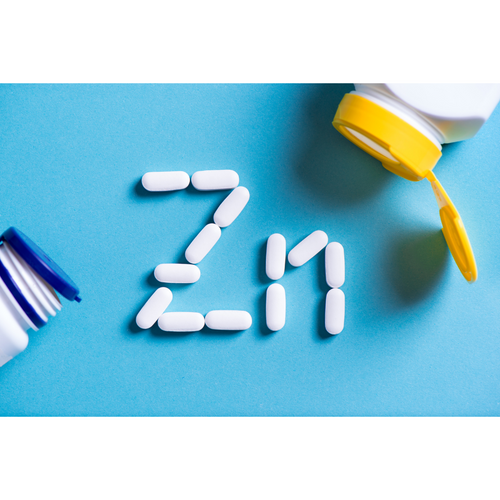Zinc is an essential trace element critical for various biological functions in the human body. In males, it plays a key role in hormone regulation, e.g., in balancing testosterone levels. A recent analysis of the literature (Liger Te, Junsheng Liu, Jing Ma, Shusong Wang,
Correlation between serum zinc and testosterone: A systematic review,
Journal of Trace Elements in Medicine and Biology) summarizes studies examining the influence of zinc on serum testosterone, including the effects of zinc deficiency and supplementation.
A total of 38 studies were analyzed, comprising eight clinical studies and 30 animal studies. The findings indicate that zinc deficiency lowers testosterone levels, while zinc supplementation can improve them. However, the degree of this effect depends on factors such as baseline zinc and testosterone levels, the form of zinc supplementation, the dosage, and the duration of supplementation. In conclusion, serum zinc levels are positively correlated with testosterone, and moderate zinc supplementation is important for optimizing androgen levels.
Zinc is a vital nutrient that supports many physiological processes, including protein structure maintenance, enzyme function, and signal transmission. In the male reproductive system, zinc is critical for gonadal development, sperm production and motility, and hormone synthesis. Testosterone, a key androgen produced by Leydig cells in the testes, is essential for male growth and development, the maintenance of secondary sexual characteristics, and sperm maturation. Testosterone also plays a crucial role in maintaining the integrity of the blood-testis barrier (BTB), which supports germ cell development. The androgen receptor (AR), a zinc-dependent protein, facilitates testosterone's effects in Sertoli cells within the seminiferous tubules. Additionally, zinc is required for the activity of 5-alpha reductase, which is an enzyme that converts testosterone into its active form, dihydrotestosterone (DHT). Zinc deficiency can impair male hormone receptor activity, emphasizing its importance in testosterone's biological functions.
Scientific evidence suggests a positive correlation between serum zinc and testosterone levels. However, some studies have found no significant association. While both human and animal studies indicate that zinc deficiency can lower serum testosterone levels and that zinc supplementation can increase them, there has not been a detailed summary of how different zinc supplementation regimens affect testosterone levels.
This recent analysis of the literature systematically examines the effects of zinc deficiency on serum testosterone and the impact of zinc supplementation on testosterone levels in both humans and rodents. The goal is to clarify the relationship between zinc and testosterone and to explore how zinc supplementation can influence androgen levels.
Reference: Liger Te, Junsheng Liu, Jing Ma, Shusong Wang,
Correlation between serum zinc and testosterone: A systematic review,
Journal of Trace Elements in Medicine and Biology,
Volume 76,
2023
Checkout our Testosterone Test Kit for assessing total testosterone levels.






